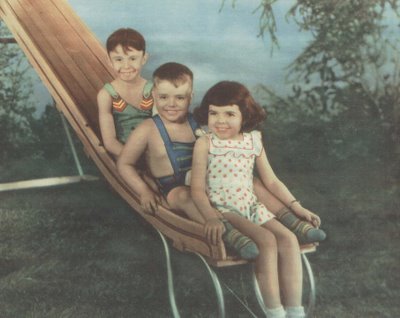
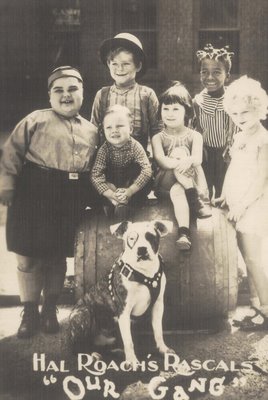
Our Gang --- Part Two

By 1935, they’d honed off rougher edges and promoted the Rascals to a level of comfort and stability denied their early talkie brethren. Much of what would eventually undermine the series at MGM began here. Our Gang now ran lemonade stands and put on impromptu shows. Spanky was fussed over by Hattie McDaniel as uniformed domestic in a distinctly middle-class home (Anniversary Troubles) while prosperous parents Gay Seabrook and Emerson Treacy took him to professional photographer Franklin Pangborn in Wild Poses. Spanky’s well-fed appearance reflected a loosening of the depression’s grip. Stories no longer revolved around issues of survival. The He-Man Woman Hater’s Club and golf lessons supplied frameworks for comedy. Would Alfalfa sing in the annual Follies? There was still the ongoing threat of neighborhood bully Butch, but he wasn’t a patch on sinister forces that had once preyed upon the Gang. That bucolic, on-location schoolhouse from earlier days was now replaced by a spanking clean edifice constructed on a Hal Roach soundstage. Classroom mischief was no longer calculated --- just little misunderstandings resolved within a (now) one-reel duration by Roach ingenue Rosina Lawrence. Harsh truths reflected in the early Our Gangs were now innocuous bromides where children were taught life’s lessons and adults no longer represented a threat. If anything, the grown-ups were too ineffectual. Spanky’s future with a neutered Johnny Arthur as father and presumed role model seemed anything but promising. By 1937, Our Gang was the last shorts group still ongoing at Roach, done with precision befitting a newly retrofitted feature manufacturer. Things like Two Too Young (Spanky and Alfalfa think Buckwheat and Porky are too immature to have firecrackers --- who the hell are they to judge?) and The Awful Tooth (dentistry was always ill-advised subject matter for this series) were almost as excruciating as the Metros to come, so there was little cause for regret when Roach (seated here with the Gang at his desk) finally closed the sale in 1938.
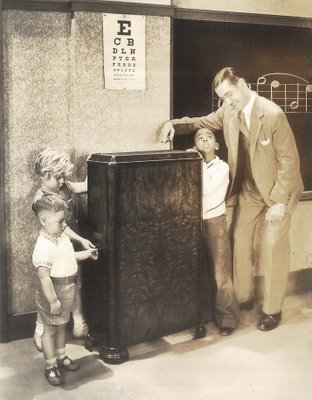
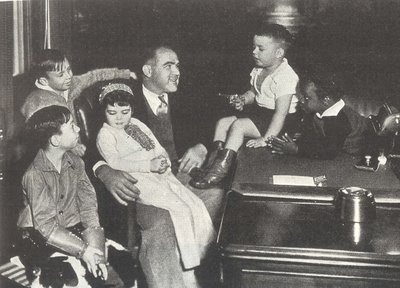
No use rehashing the later Our Gangs. Suffice to say they wheezed out in 1944. All the kids were left to fend for themselves. You’d think Metro could have at least kept them on as day players, helped with admission to a trade school ---something. Those bleak early subjects might have prepared older Rascals for what they’d face now. Books have been written about whatever became of, etc. Leonard Maltin and Richard Bann authored the best one. The fifties were barren ground for the gang before television release of the old shorts revitalized interest. A reunion of silent cast members on Art Baker’s You Asked For It was eerily effective for the malaise it revealed among the group (and Mickey Daniels seems slightly demented, as usual). Viewers expecting a glimpse of the Gang they best remembered must have been disappointed, for the silent comedies had been out of circulation for years even then, and would remain so, other than mutilated excerpts on television’s The Mischief Makers, and a small handful in the Interstate syndicated package. We wondered what had become of the talking Rascals, but information along these lines was hard to come by in the sixties, when public curiosity may well have been at its peak due to TV exposure in virtually every market. Everybody knew Alfalfa died in a knife fight over $50 (one kid at school maintained this was Pete The Pup’s fate as well). My interest was piqued when word came that Spanky was distributing home heating oil in Hendersonville, NC (still not sure about that one). Tabloids would report the surfacing of a Fatty or a Stinky, but as these were characters unknown to any period within the Gang’s twenty plus year run, one had to assume Fatty and Stinky were either liars or madmen. There was one surviving Our Gang member I did locate, and to my youthful wonderment, she stood right before me every day teaching sixth grade band…
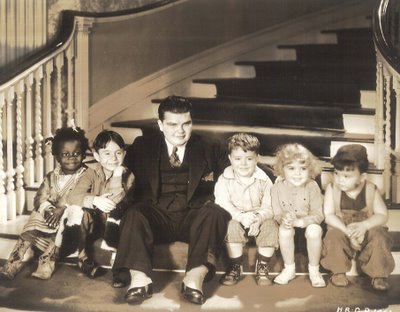
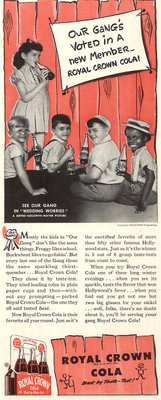
My instrument was the clarinet, but Priscilla Call knew I was faking most of the notes, as I had no musical talent and less initiative to learn. Mrs. Call had taught band around the county school system for at least ten years. Before that, she’d attended music conservatory. Her long past career as a child actress in movies was known as well, but that was a forbidden topic among we band students. The singing cowboy host of Charlotte TV’s Little Rascals Club was rebuffed when he sought an interview, and Mrs. Call had to deal with the persistent local myth that confused her with Our Gang’s Darla Hood. She was actually Priscilla Lyon during the Hollywood years, landing there by virtue of a Hal Roach sponsored talent show she’d won back in Virginia. It was 1935, the Shirley Temple gold rush was on, and Priscilla’s mother figured on mining some of it. Eventually, the whole family landed in Culver City. The seven-year-old tested for Darla’s part in The Bohemian Girl, then decorated the chorus of The Our Gang Follies Of 1936. Priscilla tap-danced on a shine box in The Lucky Corner, and got feature work where she could. There were more aspiring moppets than buffalo head nickels, so competition was intense. She almost got to play Becky Thatcher in Selznick’s Adventures Of Tom Sawyer, but Ann Gillis prevailed. The Hollywood scene never appealed to Priscilla, so by the time she got out (in 1942), there’d be no tears of parting. Most of the band kids left her alone about the Rascals, but Mrs. Call was aware of my overpowering (if not overbearing) interest in such things, and looking back on it now, I guess both of us knew that there would someday come a reckoning.
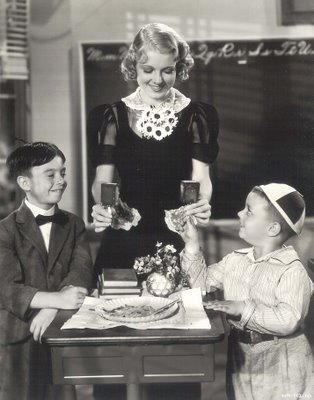

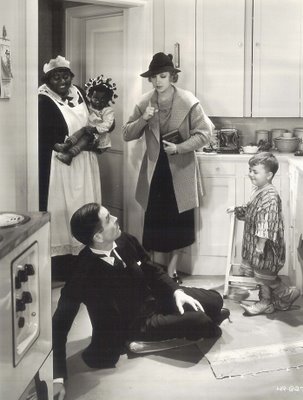
That final morning in band found me gingerly approaching the lectern as Mrs. Call conferred with fellow musicians about an upcoming concert. Perhaps she’d not paid sufficient heed to my question so as to realize the terrible consequence in answering … Mrs. Call, Did you ever meet Lon Chaney, Jr.? Her response was a casual yes. When and where? was my next query. Oh, he was making some picture about a werewolf and I stood on the stage and watched, she said, as if that amounted to something less than the supremely momentous event in anyone’s life. My twelve-year-old euphoria must surely have alarmed her. Was Claude Rains there? Did you see Lugosi? Was Jack Pierce on the set to attend Chaney’s make-up? The questions were as rapid-fire as they were relentless. Within five minutes, I’d been relocated to a corridor outside the band room with the understanding that classes would proceed henceforth without benefit of my presence. In short, I was booted out of band. Booted, my dear baron, for knowing too much. Later sightings of Priscilla Call, even in high school, were but fleeting. She’d see me in the hall, dart quickly around a corner, or beat a hasty retreat toward a classroom. I began to think of her as a faculty equivalent of the fabled Yeti, rarely glimpsed but definitely out there. It would be 1980 before she’d finally talk, and this was during her final illness. We spent at least two hours going through scrapbooks and noting credits, many of which were unknown, even to her. She’d been in a number of features in addition to the Our Gangs, and had quite a career in radio as well. Co-stars included John and Lionel Barrymore, Ronald Reagan, Tyrone Power, Shirley Temple, Claude Rains (his daughter in Strange Holiday) --- a real galaxy of notables. Priscilla was the only Golden Age celebrity my town ever had, and I was privileged to be the one to finally take down her story. Other Little Rascals may have been more noteworthy, but this was our Rascal.